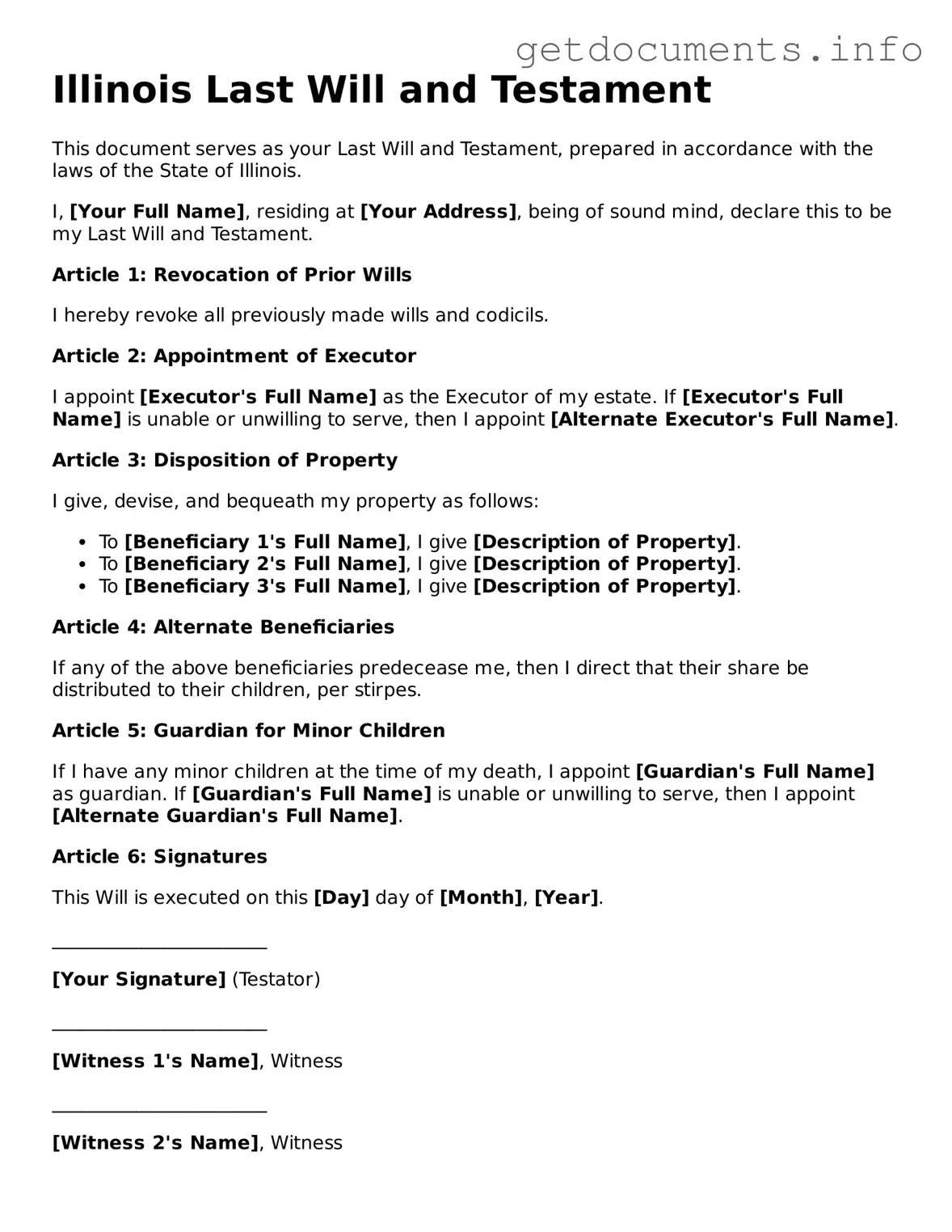Free Last Will and Testament Template for Illinois
A Last Will and Testament form in Illinois is a legal document that outlines how a person's assets and affairs will be handled after their passing. This essential tool ensures that your wishes are honored and provides clarity to your loved ones during a difficult time. To get started on securing your legacy, fill out the form by clicking the button below.
Access Last Will and Testament Editor

Free Last Will and Testament Template for Illinois
Access Last Will and Testament Editor
Got places to be? Complete the form fast
Fill out Last Will and Testament online and avoid printing or scanning.
Access Last Will and Testament Editor
or
⇩ PDF File
